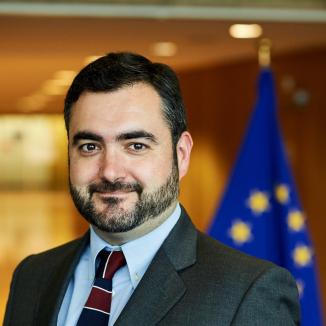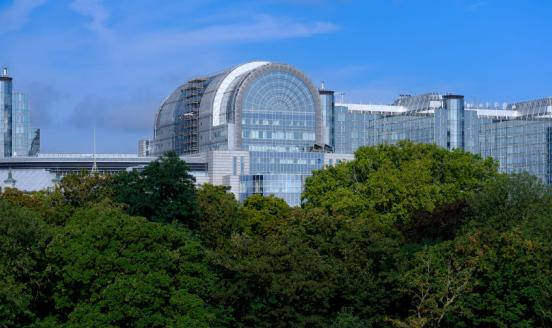
Miguel Gil Tertre
Chief Economist, Directorate-General, European Commission, DG ENER
Miguel Gil Tertre is a member of the Cabinet of Jyrki Katainen, Vice-President for Jobs, Growth, Investment and Competitiveness for the European Commission. His main task is to coordinate the investment initiative. An economist by training, Miguel Gil Tertre holds an MBA by the Instituto de Empresa Business School and degrees by the Universities Paris IX-Dauphine and Autonoma de Madrid (first graduation prize). A Commission official since 2007, Miguel Gil Tertre joined the private office of the Director General in charge of Economic and Financial affairs from 2011 to 2014, during the so-called Eurocrisis. Prior to that he worked for ten years in competition and regulMiguel Gil Tertre is currently Chief Economist in the Directorate-General for Energy at the European Commission, where he is responsible for modelling the impact of energy-related policy proposals and ensuring that they are economically coherent. Mr Gil Tertre’s previous assignments include negotiating the recovery and resilience plans for the Czech Republic, Hungary, Poland and Slovakia. In this role, he was also responsible for fiscal, investment and taxation issues regarding the recovery plans of all EU Member States. Before that, he oversaw coordination of Member States’ economic and investment policies in the Commission’s Secretariat-General. As a member of the Cabinet of Jyrki Katainen, European Commission Vice-President from 2014 to 2017, Mr Gil Tertre’s main contribution was the design and coordination of the Investment Plan for Europe, also known as the Juncker Plan. He was part of the private office of the Director-General for Economic and Financial Affairs from 2011 to 2014 (during the European debt crisis). Prior to that, he worked in telecommunications for ten years on competition and regulatory issues, both at the European Union and at the national level. An economist by training, Mr Gil Tertre has an MBA from IE Business School and economics degrees from both Université Paris IX-Dauphine and Universidad Autónoma de Madrid, graduating from the latter as top of his class. He has also completed executive education courses at Harvard Business School and the London School of Economics. He is a regular events speaker and has published several academic articles and book contributions on economics.atory issues on network industries (telecommunications), at both EU and national levels.
Featured work

Climate Targets 2040: Bridging Modelling and Policy
Potential impediments to long-term investment
How can we encourage long-term investment in Europe? Many factors hinder long-term investment but are there risks involved in reviewing existing regul